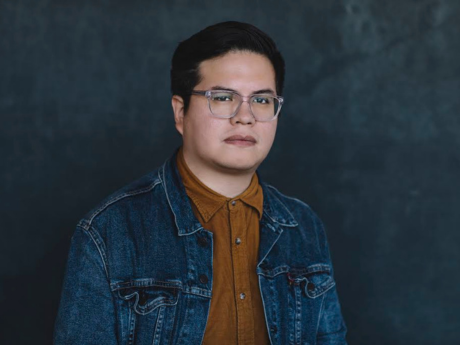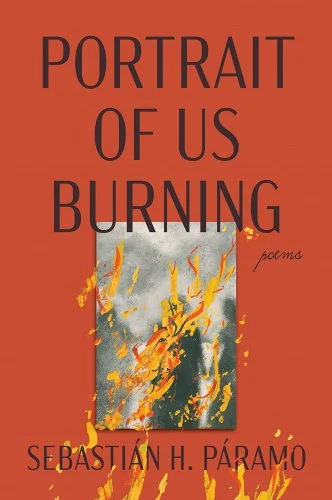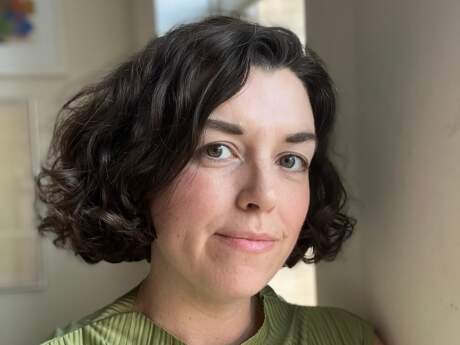In Their Own Words
Sebastián Páramo on “Where Your Father Was”

Where Your Father Was
for my Uncle Lalo
We lent each other tools. We learned the American tongue.
We wing-manned & learned “Dancing on the Ceiling.”
We showed off our phrase, our bailas con el amor.
We gave the shove, said here’s a job patching roofs.
We scaffolded frames. We built homes.
We woke at dawn, kissed our wives, our newborns—
We sent money back home. We remembered where our father worked.
Once,
there was a power plant—he raised us
on one knee. He said there’s a whole sky waiting.
Take its clouds, its rain, & drink it. We take that cloud.
We save it for thirsty hearts. We gave it to you.
Reprinted from Portrait of Us Burning (Curbstone Books, 2024) with the permission of the author. All rights reserved.
On “Where Your Father Was”
“Where Your Father Was” is one of the earliest poems in Portrait of Us Burning. This poem, like many I wrote for the book, is obsessed with searching for an origin story. I remember asking my Dad questions about why he came to Texas. He was eighteen years old and he landed in a place with his brother as a roommate. They spent their twenties working odd jobs, mostly in construction, but they also liked to go to dance clubs. He told me everything changed when his kids were born.
Writing this poem was a breakthrough for me. For a long time, I didn’t know how to write myself and this one comes from the perspective of the speaker’s uncle. The persona opened a doorway to understanding my own origin story. I learned to lean into the physical language of “shove and wanted the diction and syntax to reflect the transformation of labor into love for family.
The first drafts of the poem were published and were the ones that validated this breakthrough and I continued to dig into the origin story of myself. When I began to put together my book and sent it out, this was always an opening poem. Even though it was published, I made dramatic revisions to the poem for the collection.
“Your Father” was the original title and the song wasn’t ever specific. The poem was written as a single stanza and didn’t have the musicality of the anaphora that I ended up using.
The new title “Where Your Father Was” is used to place it in conversation with another poem, “Where Your Mother Was.” The specificity of the song “Dancing on the Ceiling” comes from learning that Lionel Richie was someone my Dad heard when he went to these dance clubs in his younger days.
The ending of a power plant comes from incorrectly remembering where my grandfather worked when my Dad was a boy. I’m not sure it’s correct, but my Dad told me his father worked at a power plant. I collapsed that detail into one that applied to the poem.
Part of the design of creating more music for the narrative was because I wanted to play with time and lay the groundwork for the themes and language that later emerge throughout the collection.
The poem is a product of the process I went through to find the heart of the book. Reflecting on it now, I see I fussed with the poem a lot because I wanted that original seed or question to echo throughout the collection.
Studying the poem’s form and content fed me. Even though it’s quite short, re-reading the poem reminds me of what I’ve learned to extract from my revision process. I think that’s why I wanted to leave the poem open-ended. The original ending felt like that, but because the speaker is so pivotal I wanted to make sure someone received that message. If I had to say, I believe that’s why the poem ends with “you” and becomes the opening poem before the first section
Photo credit to Paxton Maroney.



